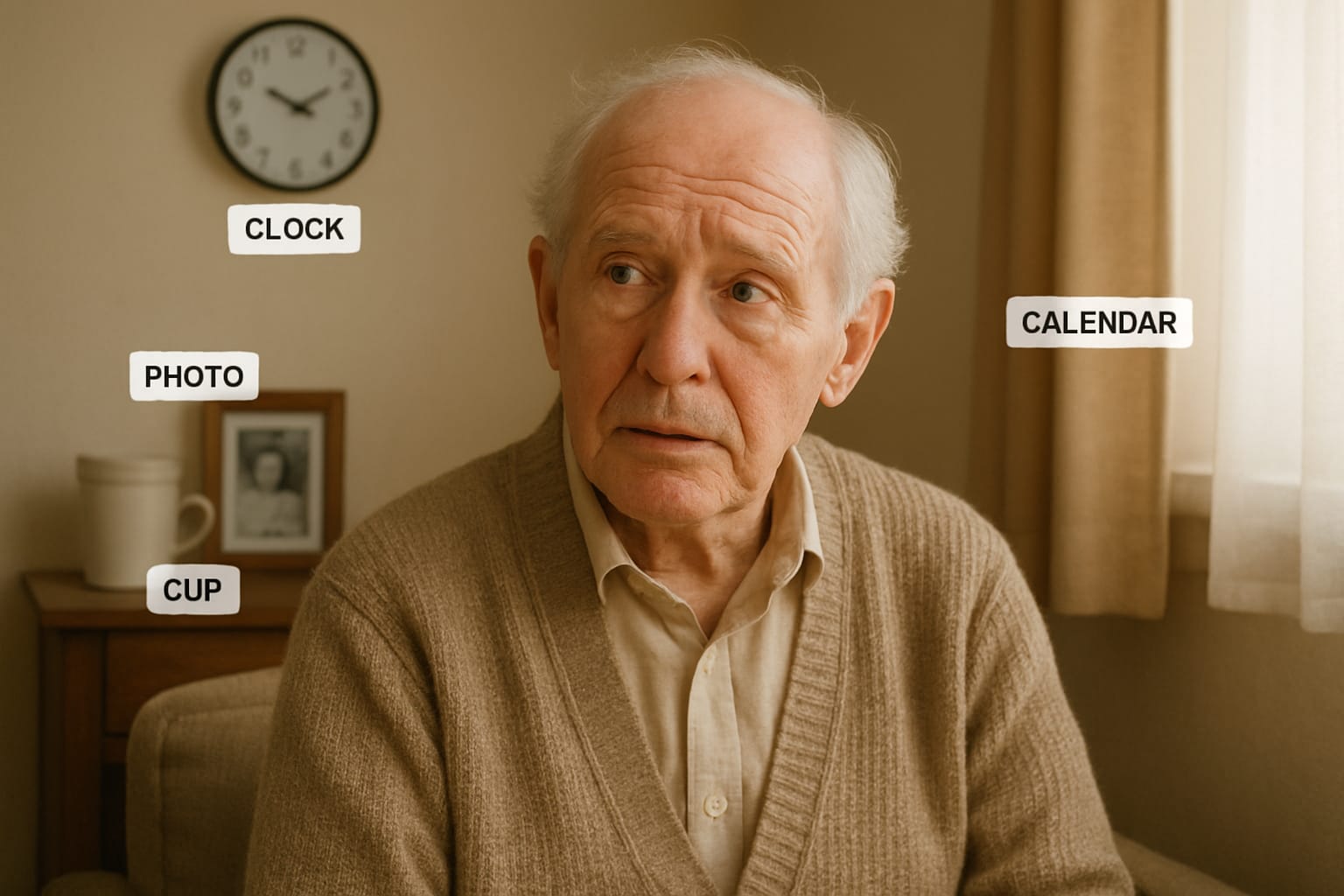Memory Loss vs. Dementia: When to Seek Geriatric Evaluation
Struggling to remember even the simple tasks? Getting lost on the way home? Wondering if your aging parent's forgetfulness could be a sign of something more serious, like dementia? Normal memory Loss vs. dementia, understanding the difference is critical. How do early identification and intervention help? Caregivers and family members can help their loved one improve their quality of life and slow the disease's progression. So, when should you seek a geriatric evaluation? Let's uncover:
What is Normal Memory Loss?
Age-related memory Loss vs. dementia? There is a world of difference between them. Let's check on mild forgetfulness, also known as age-associated memory impairment. Reason for memory loss? It's a natural part of aging. Memory loss symptoms?
-
Occasionally, forgetting names or appointments.
-
Taking longer to recall information.
-
Misplacing items from time to time.
-
Struggling to multitask or focus for long periods.
These are manageable and don't interfere much with daily life. Memory loss treatment? Yes, better organization, stress reduction, and adequate sleep are the keys.
What are the types of Memory Loss?
Here are some memory loss types for your understanding:
-
Short-term memory loss
-
Long-term memory loss
-
Amnesia
-
Mild Cognitive Impairment (MCI)
-
Dementia-related memory loss
-
Psychological or emotional memory loss
What is Dementia?
Dementia is a clinical syndrome that involves a progressive decline in cognitive function. It affects memory, language, judgment, reasoning, and the ability to perform everyday activities.
What causes dementia?
Dementia is generally caused by damage to brain cells, leading to problems with memory, thinking, behavior, and daily functioning. The causes include:
-
Alzheimer's disease
-
Vascular dementia
-
Lewy body dementia
-
Frontotemporal dementia
-
Parkinson's disease-related dementia
-
Chronic alcohol abuse
-
Traumatic brain injury (TBI)
What are dementia symptoms?
Identifying symptoms helps with early intervention and slow progression. Here is the list of dementia symptoms you should know:
-
Consistent memory loss that worsens over time
-
Difficulty performing familiar tasks like cooking or handling finances
-
Language problems, including struggling to find words or follow conversations
-
Getting lost in familiar places
-
Poor judgment or decision-making
-
Changes in mood, behavior, or personality
If dementia symptoms are interfering with your independence and relationships, they require further medical evaluation.
When to Seek a Geriatric Evaluation?
A geriatric evaluation is a comprehensive assessment by a healthcare provider specializing in the health of older adults. It involves cognitive testing, physical health assessment, medication review, and evaluation of daily function.
Consider seeking a geriatric evaluation if:
-
Showing signs of significant or worsening memory loss.
-
Noticeable changes in behavior, personality, or ability to manage daily tasks.
-
Suspecting the symptoms are something more serious than just a part of normal aging.
-
Family history of dementia or cognitive decline.
-
To rule out reversible causes like medication side effects, depression, thyroid issues, or vitamin deficiencies
Early diagnosis can lead to better care planning, access to resources, and potential treatments. It can slow dementia progression.
What are dementia treatments?
How to slow progression, manage its symptoms, and improve your loved one's quality of life? Early diagnosis is the key. Treatments include:
-
Medications like Memantine
-
Cognitive stimulation therapy (CST)
-
Memory training & rehabilitation
-
Behavioral therapy
-
Lifestyle Modifications like physical exercise & diet
-
Quality sleep and stress reduction
-
Occupational therapy
-
Speech and language therapy
Why Choose Believers Hospital, Thiruvalla, for Dementia Care?
Though memory changes are a normal part of growing older, some can signal a more serious cognitive decline. Knowing the difference is key to ensuring older adults receive the support and care they need. Acting early can make all the difference in maintaining quality of life and dignity in aging.
Believers Church Medical College Hospital, Thiruvalla, offers compassionate care with expert dementia diagnosis and management. Our Geriatric Medicine department focuses on both medical and psychosocial well-being. By bringing together a multidisciplinary team including geriatric physicians, psychiatrists, neurologists, rehabilitation specialists, and therapists, our weekly Dementia Clinic tailors personalised care plans for your aging parent. We have the best doctors in Kerala who focus on the holistic well-being of our patients.
Worried about your loved one's persistent memory loss? Don't wait. Book a comprehensive geriatric consultation at our serene, senior-friendly Believers Hospital.
